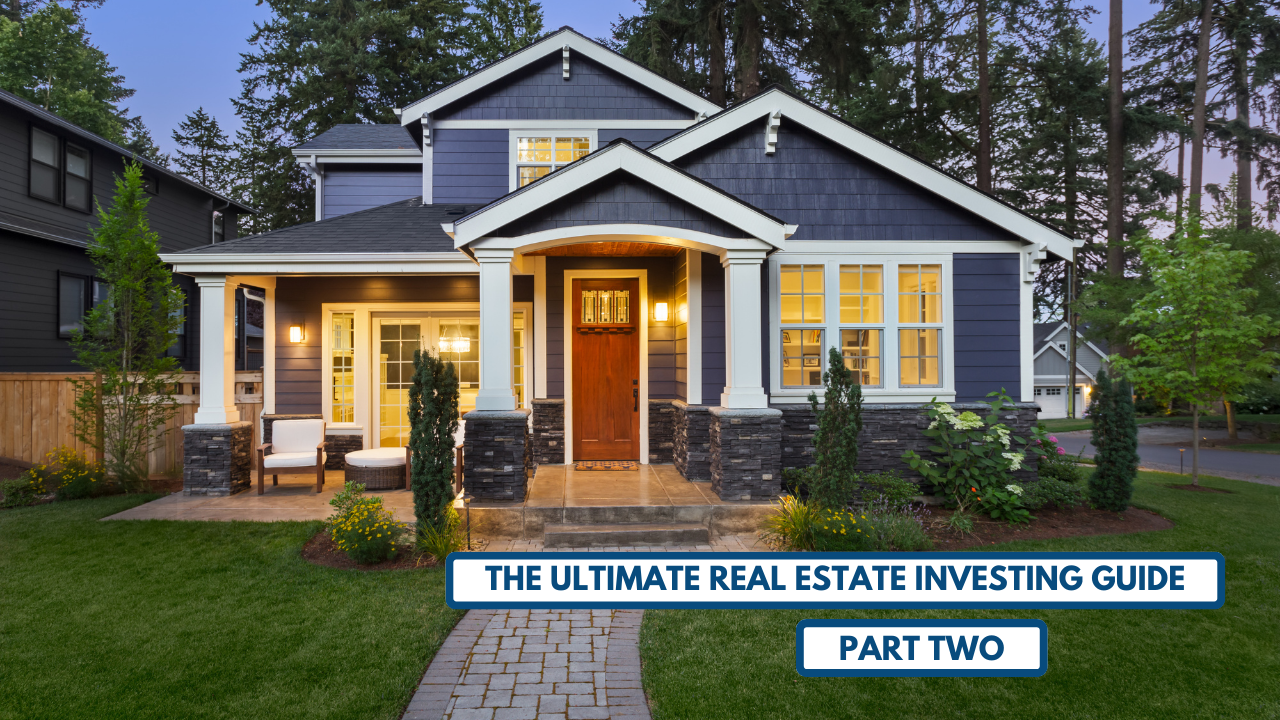The Ultimate Real Estate Investing Guide: Property Management
part two
We cover the basics of real estate investing and provide an overview of the different strategies and opportunities available. Whether you're just getting started or looking to expand your real estate investment knowledge, this vlog is a great resource for anyone interested in building wealth through real estate investing. (Part Two of Two)
More of a reader? Catch the video transcript below!
Hey guys! I’m back with Part Two of my Ultimate Real Estate Investing Guide.
In Part One, we talked all about the things you need to consider when you’re evaluating rental properties — if you missed that one, give it a read here.
So, once you find the perfect rental property to invest in, how are you going to manage it?
What You Need to Know About Rental Property Management
You have several options to choose from when it comes to managing your rental property.
You can:
Self-manage if you have the bandwidth
Hire someone to do the managing for you
Do a mix of the two — like have someone else screen tenants and handle lease paperwork and then hand it off to you to manage
Know That Self-Managing Means You’re “On” 24/7
So, you want to self-manage your rental property? Awesome!
But there are some things you’ll want to keep in mind. First, you can always count on tenants to call you at 9:00pm on a Sunday even when the thing broke on a Wednesday.
When you’re self-managing, you have to be available for these tenants pretty much around the clock. They’ll hit you up at odd hours for the weirdest things. If there’s an emergency, you have to be able to drop everything you’re doing and address it.
Understand Market Rents
Secondly, you need to understand what the market rents are so you can maximize them.
Not enough people stay on top of what the market rents are and raise rents to match. If you don’t do this, it can cause problems for your valuation and trying to raise rents in the future.
Here in California, we have rent cap rules, so you’ll want to get with your local real estate professional to determine what they are in your area and how they affect you.
Do Your Due Diligence to Get Quality Tenants
You want to rent to quality, responsible tenants.
To do this, you need to make sure you’re maximizing the pool of potential tenants by advertising in the appropriate channels. You’ll also want to interview each potential tenant to understand the total package of what they’re bringing to the table economically and personally.
Protect Yourself Legally With Solid Lease Agreements
Next, you’ll want to make sure you have the proper lease paperwork in place.
Do you have your bed bug disclosure?
Do you have your military-based disclosure?
There are so many documents that are required above and beyond a simple lease agreement. So, make sure you’re working with someone you trust to make sure you have all the proper disclosures in place so you can have an airtight lease agreement.
Assemble Your Maintenance Team
Now that you’ve got your tenants signed and all moved in, you now have to have a plan in place for maintenance and repairs.
It’s time to assemble your team of maintenance professionals: plumbers, contractors, HVAC pros, roofers, and other high-quality people you might need.
You should also have cash savings set aside for maintenance when issues arise.
Have Plans in Place for Tenant Issues
If a tenant loses their job and stops paying rent, are you going to be able to make the mortgage?
Do you know how to execute a cash-for-keys agreement?
Do you have a high-quality attorney in place to help you with evictions, vacancies, and things of that nature? Because these things do happen, so you need to have plans in place for tenant risks.
Building Wealth With Rental Properties
At the end of the day, investing in rental properties can be a great way to build wealth, but we have to make sure that we do our due diligence and make sure that we:
Buy in the right area
Understand the condition of the property and the implications
Have the right financing structure
Know how to manage and operate the property after purchase
If investing in rental properties is something that interests you, make sure that you’re working with a trusted real estate professional with experience in these types of investments.
If you’re in San Diego and have more questions about this topic, we’d love to work with you and walk you through the process!
That’s it for this two-parter, guys! See you in my next one.
Brent Edwards (aka Brent the Broker) is a residential real estate agent and Realtor in San Diego, CA who helps clients buy and sell homes in San Diego, California and all surrounding areas. Brent is a highly-recommended Realtor in San Diego by family, friends and past clients. Call Brent today at 619-550-8070 if you have any questions about real estate in San Diego or you'd like to buy or sell a home.





